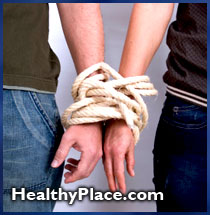Excerpts from the Archives of the Narcissism List Part 37
- Application to the Media
- Grandiosity and Rage
- Second Amazon Interview
- Interview granted to JustViews
- Revisiting My Self
- Interview granted to Independent Success!
1. Application to the Media
My name is Sam Vaknin. I was released from jail in 1996. I carried a few crumpled clothes in a shabby duffle bag. That is all that was left of my life as Israel's most prominent stock broker. This and an improvised cardboard bound notebook in which I kept a record of a journey of self-discovery within the prison walls. This was later to become "Malignant Self Love - Narcissism Revisited" (ISBN: 8023833847). Until recently, I was the Economic Advisor to the Government of Macedonia (of Kosovo crisis fame) and a political and economic columnist. But I am also an acknowledged and self-aware narcissist - the victim of the pernicious Narcissistic Personality Disorder.
I am a published and awarded author of Hebrew short fiction.
My first act was, therefore, to transform my surreptitious notes into a coherent manual.
What emerged was a guide to pathological narcissism and a detailed phenomenology of the path of destruction strewn with victims that narcissists often leave behind. The full text of "Malignant Self Love" - available on this web (http://www.geocities.com/vaksam) - has attracted more than 500,000 readers and 4,000,000 impressions in 3 years.
My web sites attract 5,000 daily impressions. There are 660 members in my Narcissistic Abuse Study List and another 2600 in my private mailing list. I get letters daily. The pain and devastation are great. The disorder is under-diagnosed and co-occurs with other mental health problems and with substance abuse or reckless behaviour (such as gambling).
The orthodoxy is that pathological narcissism is the outcome of early childhood trauma or abuse by parents, caregivers, or peers.
There are dissenting views, though. Dr. Anthony Benis from Mount Sinai Hospital postulates a genetic origin of the disorder. Others (such as Gunderson and Roningstam) even described a transient form of narcissism. It is a new mental health category (defined as late as 1980) so not a lot is known. Scholars (such as Lasch) even ascribed pathological narcissism to whole cultures and societies.
I am at your disposal should you decide to discuss this emerging leading mental health problem (today believed to be at the root of many others).
Thank you for taking the time to read this.
2. Grandiosity and Rage
Grandiosity and rage are also features of the manic phases of various disorders, including substance-abuse disorders. So, the answer to your question is: if a person is a narcissist, he is a narcissist, on and off alcohol.
3. Second Amazon Interview
I was born in Israel and I am 40 years old. Both facts are pertinent. As an Israeli of Sephardic origin, I was exposed to the dominant Central and East European (CEE) culture in Israel. As a child of the 60s, I witnessed the gradual disintegration of the Soviet block through the distant echoes of Russian immigrants to the Israel and their media. Living in Israel meant living in constant existential uncertainty. That people chose to immigrate from seemingly omnipotent Russia to ephemeral Israel - revealed to me the extent of the inner rot of the Evil Empire. A decade of living and working in the Balkans, this cesspool of history, has only served to strengthen my convictions, now hardened into near prejudices.
I wrote all my life. It was my preferred venue of escape. I published short fiction, works of reference and columns in periodicals. Writing sits well with my personality disorder. It provides me with narcissistic supply. It is magical in that symbols lead to action. It provides the twin illusions of eternity and sagaciousness. I have never thought of myself as anything but an author.
I have always been drawn to short fiction - although most of my published work (in Hebrew, Macedonian, other languages) is non-fiction. There is an essence in short fiction, distilled and aromatic which is missing in the homeopathic equivalent of the longer genres (such as the novel). I have thus found myself enamoured with A.A.Poe on one end of the spectrum - and Francoise Sagan on the other. The last two decades have been a revelation to me in that they provided me with legitimacy. My short fiction deals with amoral characters, making amoral decisions about emotionally harrowing (to them, emotionally neutral) situations. Post modernism liberated me and allowed me to pursue this line of writing.
I try to abstain from romantic literature and am pretty successful at doing so. The scariest book I ever read is the Amityville Horror. It required a whole sleepless night to wear off. The funniest book I read is "Three Men in a Boat" by Jerome K. Jerome. I love wry, marginally vicious humour. I also found "Tom Jones" by Fielding hilarious.
I hate music. All types of music. It makes me intolerably sad. It osmotically infiltrates me, cell-level, and drowns me. Short of breath I barely make it to the gramophone (I prefer vinyl records) and turn it off.
I am reading Goldhagen's "Hitler's Willing Executioners". How easy it is to pathologize an entire nation. All it takes is the right Petri dish - centuries of bilious libel coupled with a licence to kill. How powerful is language - to incite, to motivate, to disguise. And how easy it is to tear through the veneer of "civilization" and "kultur". The most ordinary people will commit the most unspeakable atrocities with glee and inventiveness given half a chance and legitimacy.
I am working on the third printing of, on a set of two volumes of my philosophical treaties and on the promotion of my newest tome, "After the Rain - How the West Lost the East" (ISBN: 802385173X). Additionally, I am weekly columnist in a few periodicals and on the web, like "Central Europe Review" (http://www.ce-review.org/authorarchives/vaknin_archive/vaknin_main.html) and eBookWeb.org.
4. Interview granted to JustViews (not published)
Just Views: From the moment you received THE CALL for your first book, what is the one thing that you have learned about the publishing business which has remained constant?
Sam: In the last 20 years, I have published 11 books in five countries in three continents (only one of which is self-published). I regret to say that the only thing constant in these varied experiences was the tendency of publishers to dumb down material in order to attract the largest common denominator. I was often told by publishers to limit my vocabulary to the level of American teenagers'. Not much to work with.
Just Views: We'd like to know a little about your first book.
(When was it sold? How many rejections did you receive before it sold? Did you use an agent? Is this a self-published book? If so, explain the process you went through to make this decision.)
Sam: I had three "first books". Three experiences so different that each one constituted a new beginning.
When I was a soldier in the Israeli army, I published short horror fiction in the army's official publication. These vignettes were so well received that a major Israeli pulp fiction publisher signed a contract for four books with me. I got paid a pittance but just seeing my pseudonym on the cover was ample reward. These were sexually explicit, sizzling, action-adventure pieces within a never-ending series featuring a Korea-born CIA agent as the protagonist.
Sixteen years later I found myself incarcerated in one of Israel's more notorious prisons. I lost everything: my deeply-loved wife, all my possessions and my reputation. I was derided and bandied about as a symbol of corruption and avarice. Jail is a great place for soul-searching. It is am imposed vacation but without the amenities and with indescribable psychological pressure. I wrote 60 short stories, 30 of which were accepted for publication (while I was a prisoner). The publisher was Israel's largest daily paper, "Yedioth Aharonot". The book won critical acclaim and the coveted 1997 Minister of Education Prose prize.
The third "first book" is my favourite - "Malignant Self Love - Narcissism Revisited". While in jail, I was tentatively diagnosed by a psychiatrist there as the victim of a narcissistic / borderline personality disorder. Alarmed by this foreign sounding diagnosis and unable to secure an unequivocal description of its problematics from the psychiatrist in question - I embarked on a road of self discovery. I made notes in an improvized and tattered cardboard-bound notebook while still in prison. Upon my release, I placed these notes on a web site. I later augmented them with research conducted alone and with others. I have corresponded with well over 5000 individuals who suffer from this disorder or are affected by someone who does. There are 2000 members in my mailing lists. My web site receives 4000 hits - DAILY. Pathological narcissism is possibly the most under-diagnosed and prevalent disorder of the latter part of the 20th century.
Just Views: Describe your feelings when you received the contract from the publisher...
Sam: Lucy in the Sky with Diamonds. This feeling - of constant, excited, agitated, floating - never left me. Not even during the endless and tedious revisions of my texts.
Just Views: Let's be honest. Do you like the covers designed for your books? Do you have any say?
Sam: When I contributed to their design - yes. This happened with "Malignant Self Love" and with my latest tome, "After the Rain - How the West Lost the East". Otherwise, I found the visual statements incorporated in the cover-art of most of my titles to be between off-putting and wrong. Cover art is the Achilles heel of publishing, it would seem.
Just Views: What would you be doing if you weren't writing? Do you have another job in addition to your writing career?
Sam (laughing): I am the Economic Advisor to the Government of Macedonia. Until 1995 I co-owned businesses with a consolidated annual turnover of 10 million US dollars. I left jail penniless but now I am recovering. I can tell you this: publishing a book may be small business. But it can yield hi-tech returns, if you hit the right raw nerve. My publisher has made 1000% on her investment in "Malignant Self Love" in less than 18 months!
Just Views: What/who influenced you to write for this market?
Sam: The readers. At first, I posted the material on my web site, as I told you earlier. The response was overwhelming and heart rending. People agonized over loved ones, irreparably broken relationships, sadistic behaviours. I just HAD to publish a book to help them. The entire text of "Malignant Self Love" is available on this website, free of charge, for those who cannot afford the print version, by the way.
"After the Rain" was prompted by the reactions to a series of texts I published in "The New Presence" (a high-brow Prague magazine) and in "Central Europe Review" (the year 2000 NetMedia Award winner for journalism). These texts dealt with communism not as a political phenomenon, but as a mass psychopathology - a mental health disorder. It was a persepective sufficiently unique and controversial to provoke heated debates and daily threats on my life. Again, I must have hit a raw nerve. The book was a natural extension of this realization.
Just Views: Tell us the hardest part of writing that you experience either day to day or contract to contract.
Sam: Finding the words, THE words, the music. I believe in poetry in prose. I believe that the reader should be able to SING my texts, should he choose to. I write with tempo, rhythm, harmony and melody in mind. But words are unwieldy creatures. They rebel. They refuse to be contorted. It is a Procrustean bed.
Just Views: In your opinion, what are the best and worst aspects of being a writer?
Sam: The worst aspect is the solitude. Not "solitude" in the sense of "loneliness" but the inability to get feedback in real time. Delayed feedback is nerve fraying. The best aspect is the alchemy, the successful composition of words and phrases, the magic.
Just Views: Curiosity killed the cat but we'd like to know anyway. Has a reader (or editor) ever told you that a specific research detail was incorrect in any of your books? What was your reaction?
Sam: Sure they did. Most of the time I was able to produce countervailing research. At other times, convoluted syntax or wrong grammar were to blame. And, believe it or not, I was once actually wrong ..:o))
Luckily, I deal in fuzzy areas. History is a Rashomon, anyhow. Psychology is as inexact a "science" as science can be (actually, it is a branch of literature). Economics is a branch of psychology. It is an easy, relativistic, life out there ...:o))
Just Views: What, if anything, is done before you start the actual writing process?
Sam: I do research. I obsess on the subject, compulsively collect data, read everything, pay attention to obscure details and set out to write an iconoclastic article. There is no substitute to research. It's a jungle out there and data are the only weapons in the author's armoury.
Just Views: To wrap up this interview, please share an experience that may (or may not!) help other writers take the publishing world by storm. (As an example, you can share your book-signing horror story which may not help writers break into the market but it would help them know what not to do at a book-signing.)
Sam: "Malignant Self Love" was featured as the ONLY narcissism-related Recommended Site by the Encyclopaedia Britannica. I took the liberty, without either informing them or consulting with them, of using this fact in my promotional material. My site is no longer there, it was removed. Don't overdo it. And ask before you venture.
5. Revisiting My Self
This is the story of how I came to meet myself and to heal by giving.
Five years ago I was in jail. Israeli prisons are amongst the most brutal and over-crowded in the world.
I shall never forget the stench, the muck, the sounds of metal gates clanging and of my own cuffs, both hand a foot.
I have served three years and some in the Israeli army but this was no preparation for the dungeons. I had to save my sanity the only way I knew how: writing. I had already published a few books of reference and pieces of short fiction, so I thought I could distract myself this way. But I wasn't ready for what followed.
Technically, I wrote at night, standing, notebook poised on an upper bed. I had the moon for illumination or the flickering flame of a cigarette lighter. I scribbled notes furiously in a cardboard bound notebook. I sensed the contours of an emerging tome. Actually, two.
I never wrote like this before: compulsively, with bated breath, painfully. And I never composed two tomes simultaneously, feeding on one other in cannibalistic regularity. Short stories describing my childhood, abuse and the resulting cold-blooded monster that I became. And a scholarly dissertation on the Narcissistic Personality Disorder (NPD) with which I was diagnosed. Paradoxically, the short fiction was detached and amoral - like dissecting a lifeless life, an autopsy of my autobiography. Critics called it "post modern". The ostensibly uninvolved and academic observation of my mental disorder was cast in turbulent and baroque prose. All the while I had memories resurfacing, poignant and frightening flashbacks and a great tsunami of sadness that I could not contain. I knew then that it was more than writing. It was self-therapy.
The short stories were published long after I left Israel never to return. They won acclaim and coveted awards. I rarely open this book, though, it threatens me in its mercilessness and mental nudity. It packs too much betrayal and cruelty and abuse and ruthlessness between its covers. I can't face myself today as I have when all my defenses were shattered by life itself. It is too painful.
I posted my scribbled notes regarding the Narcissistic Personality Disorder on the internet a year after my release from incarceration. I expected nothing. I regarded the web as a kind of glorified storage space. What followed was an avalanche of e-mail messages: begging, imploring, expressing relief, joy, pain, hate and fear - a communal catharsis. Pathological narcissism was not the idiosyncratic and isolated phenomenon I believed it to be. It seemed to have permeated society, poisoned relationships, threatened co-existence. In short: it was an under-diagnosed and under-reported menace.
I was still reluctant to commit my time and resources to an obscure mental health disorder, however close to home. Virtually unwillingly I added sections to the web sites. I added frequently asked questions to cope with the ever increasing deluge requesting help or advice (now there are 82 of them). I then opened and moderated a discussion list, the Narcissistic Abuse Study List (it has 660 members). I posted excerpts from the list on my web site. I authored online tutorials, courses, a primer and glossary. I had "Malignant Self Love - Narcissism Revisited" printed and sold. Before I knew it, I was doing nothing except these things.
It was perhaps then that I made the greatest discovery - that giving is getting. I derived as much healing and peace of mind and happiness from sharing and aiding others, as any of my correspondents did. I multiplied by dividing, possessed by sharing, evolved by regressing into my own mind. People wanted to learn more about me and this was gratifying. They were grateful and this was satisfying. But, above all, it was I who derived strength and sustenance from these interactions. It is a great and on-going lesson. I made lemonade from my lemon and shared it with the thirsty. As time passed, the income from the book enabled me to dedicate more and more of my time to doing this. a virtuous cycle was created: I give and I receive that which I give. There can be nothing more rewarding.
6. Interview granted to Independent Success! (not published)
Q: Please provide a brief biography that covers yourself, your books and your career in publishing.
A: I am the author of "Malignant Self Love - Narcissism Revisited" and "After the Rain - How the West Lost the East". I am a columnist for Central Europe Review (http://www.ce-review.org/authorarchives/vaknin_archive/vaknin_main.html), United Press International (UPI), and eBookWeb, and the editor of mental health and Central East Europe categories in The Open Directory and Suite101.
Until recently, I served as the Economic Advisor to the Government of Macedonia.
Q: What has been your biggest successes to date and how did you achieve them ? (Feel free to brag :)
A: I had two, unrelated and disparate, successes.
The first was my book of short fiction in Hebrew ("Requesting My Loved One"), published by Miskal-Yedioth Aharonot.
It won the 1997 Ministry of Education prose award in Israel.
I wrote it while in jail and smuggled it into the hands of (the very excited) editors at the venerable publishing house (affiliated with Israel's largest daily paper). The secrets of its success have been its brutal honesty and its post modernist relativistic morality. In other words: I told it all and I judged no one. I described childhood abuse, financial crime, group sex, and mental illness with equanimity and detail which made the book voyeuristically irresistible. Paradoxically, though, this mechanistic streak, this refusal to commit myself, this standoffish pose - also imbued the book with a great, all-pervasive, existential sadness.
My other success, "Malignant Self Love - Narcissism Revisited" was also written in jail (at least in outline). It was an unflinching attempt to understand what went wrong, what brought me hither, and where was I likely to go from there. In its current incarnation, it is an impersonal textbook, with a lot of scholarly material and dozens of frequently asked questions answered in laymen's terms. So, it has a lot for everyone. It deals with a pernicious and devastating mental health issue - the Narcissistic Personality Disorder (NPD) with which I am afflicted. I think that what made it a hit (and, at $45 + shipping it is not cheap) is its relentless straightforwardness, its uncompromising gaze, its willingness to venture where others feared to tread. The narcissist is often also a sadist, a stalker, a masochist, a sex pervert, and an abuser. The book is a manual intended to help the narcissist's exhausted and traumatized victims extricate themselves from the nightmare of being near a narcissist or with him.
Q: What has been your biggest failure and what lead to it? (Pull out your skeletons and rattle them proudly :)
A: My biggest failure has been "After the Rain - How the East Lost the West". It is an anthology of my political columns (which deal mainly with the Balkan and Central and Eastern Europe). It was published right on time (with the eruption of strife in the Balkan). It is aesthetically designed. It is reasonably priced. I have a following of thousands of dedicated and alert online readers. And it sold next to nothing.
Why?
I thought that selling a book is a matter of mastering a few basic principles. Fresh on the heels of the success of "Malignant Self Love", I hubristically believed that I knew everything there is to know about book promotion. The truth is that every book is an entirely independent product. It has its own, idiosyncratic, rules of promotion which one to discover anew.
Moreover, "eyeballs", online readers, do not always translate to offline cash. Books can rarely be promoted exclusively online. And niche products are a lucrative proposition - providing the niche is sufficiently large and accommodating. "Balkan studies" proved to be a narrow and Procrustean market.
Q: If you knew then what you know now... what would you change and what is the best advice you would pass on?
A: I would have never embarked on any of my publishing (ad)ventures.
I live in Macedonia and sell books in the USA. Bad idea. One must be close to one's market.
Book sales are only part of a much larger line of derivative products: lectures, seminars, workshops, media appearances.
These cannot be remote controlled. The author's presence is indispensable. There is no substitute to the human touch. Get in touch with your readers. Keep offering new products. Re-invent yourself.
One important point:
Be online. Be generous with your free online content - but not TOO generous. The entire text of "Malignant Self Love" is available online. While we had more than 700,000 visitors in the last 4 years - we sold books only to a negligible fraction of them.
To succeed, write about things you know well or that are close to your heart. Write with conviction and passion - but do not hector or judge. Just tell a story. Never forget the narrative. People buy books either to escape from reality - or to grapple with it. A good book provides both options and allows the reader to smoothly switch between them.
Q: Look to the future and tell me what are your plans for the future?
A: To write. To write. To read. And then to write again. I cannot stop writing. Even if no one were to read my work - I would still be writing.
next: Excerpts from the Archives of the Narcissism List Part 38
 Researchers at Stanford University are examining whether online support groups offer the same benefits traditional groups provide to people with eating disorders, and if they have other pros and cons that face-to-face support groups may not.
Researchers at Stanford University are examining whether online support groups offer the same benefits traditional groups provide to people with eating disorders, and if they have other pros and cons that face-to-face support groups may not. Here are a few questions to ask yourself. . .
Here are a few questions to ask yourself. . .
 To accuse without evidence could cause the flame of your relationship - however much there is - to go out. If your partner is not cheating, then confrontation will most likely cause a major trust issue. It may be wise to consult a therapist or relationship coach with your suspicions before doing anything that could further damage the relationship.
To accuse without evidence could cause the flame of your relationship - however much there is - to go out. If your partner is not cheating, then confrontation will most likely cause a major trust issue. It may be wise to consult a therapist or relationship coach with your suspicions before doing anything that could further damage the relationship. 8 - When they arrive home and head straight into the shower or bath.
8 - When they arrive home and head straight into the shower or bath. Learning to trust again takes time; lots of time, perhaps even years. The deeper the wound, the longer the healing. Talking with your partner about the affair when the need to talk surfaces is another important factor of healing the relationship. However, consistently bringing up the past excessively or "throwing it back in their face" only and always reopens the wound and prolongs and often prohibits the completion of the healing process.
Learning to trust again takes time; lots of time, perhaps even years. The deeper the wound, the longer the healing. Talking with your partner about the affair when the need to talk surfaces is another important factor of healing the relationship. However, consistently bringing up the past excessively or "throwing it back in their face" only and always reopens the wound and prolongs and often prohibits the completion of the healing process. The More You Know: Getting the Evidence and Support You Need to Investigate a Troubled Relationship
The More You Know: Getting the Evidence and Support You Need to Investigate a Troubled Relationship 

 Adultery: The Forgivable Sin
Adultery: The Forgivable Sin 


 Codependents are connected in an unhealthy way to the people and even the objects in their environment. They constantly react as if there was some invisible and painful cord connecting them to other people. This makes it almost impossible for them to listen without becoming reactionary. Talking with a codependent may leave you feeling hurt and empty or like you haven't been heard at all. Chances are, you haven't been heard.
Codependents are connected in an unhealthy way to the people and even the objects in their environment. They constantly react as if there was some invisible and painful cord connecting them to other people. This makes it almost impossible for them to listen without becoming reactionary. Talking with a codependent may leave you feeling hurt and empty or like you haven't been heard at all. Chances are, you haven't been heard. Was your child off of her ADHD medications during the summer break? If so, you may want to restart it at least a week or two before school starts to get back the routine of taking her medicine each day. This is especially important if your child is taking
Was your child off of her ADHD medications during the summer break? If so, you may want to restart it at least a week or two before school starts to get back the routine of taking her medicine each day. This is especially important if your child is taking